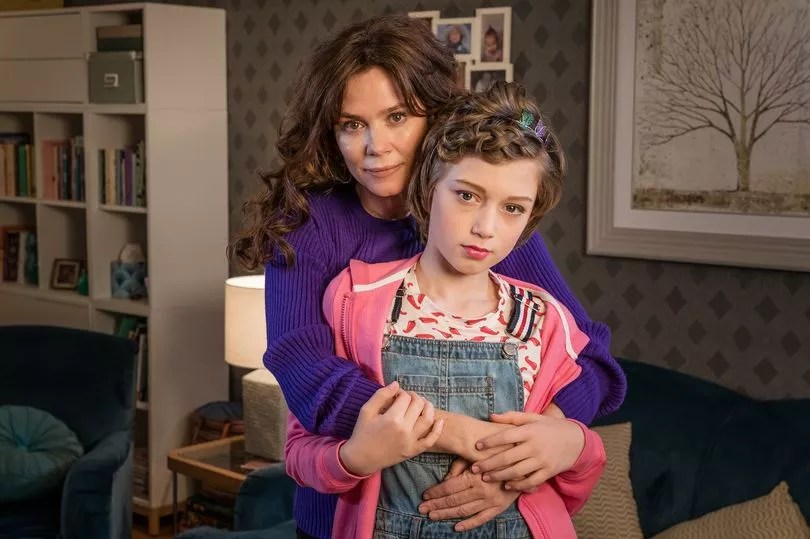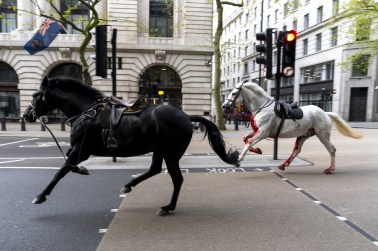In the wake of the Cass Report’s damning verdict on the reckless ‘social transitioning’ of children and the prescribing of puberty blockers to minors, it’s perhaps an apt time to recall a mini-series that appeared on ITV a few years ago cheerleading for both.
Butterfly was broadcast in October 2018 just as Theresa May’s national consultation about proposed changes to the 2004 Gender Recognition Act was nearing its end, and dealt with the issue of trans children. Written by Tony Marchant and directed by Anthony Byrne, its lead consultant was Susie Green, the then-head of transgender youth support charity Mermaids, who took her son to Thailand for sex reassignment surgery on his sixteenth birthday.
Butterfly, over three episodes, told a harrowing story for our time. Vicky and Stephen Duffy’s 11-year-old son Max believes he’s in the wrong body. At home he sometimes wears girl’s clothing but at school plays the part of a normal boy (though is bullied for being visibly different from the other kids). As Max’s adolescence approaches, the situation is getting worse – he’s begun cutting himself and attacking his penis with broken glass: ‘I don’t want it… It’s disgusting. I want to get rid of it.’ Max’s mother Vicky, brilliantly played by Anna Friel, is highly sympathetic: ‘I want to have a happy daughter, not a dead son.’ But his father is sceptical, hopeful it’s a phase Max (soon to be Maxine) will grow out of: ‘If only I was there for him and a proper role model… Kids, they change their minds all the time.’
After being told by a doctor about puberty blockers – ‘they buy the child some time. To see what feels right for them. To see if they want to change their mind’ – the parents visit the ‘Ferrybank Clinic’ (presumably a nod to the Tavistock Centre).
At the Mermaids charity they’re told by its director, an earth-motherish Felicity Montagu (Lyn from I’m Alan Partridge), ‘I know exactly how you’re feeling… Listen to your child.’
The traumatic emotional journey which follows – taking this divided family through domestic strife, theft of money, abduction, and police arrest – culminates in the father’s third act embrace of his son’s new gender and the eleventh-hour prescription of puberty blockers, to whoops of jubilation on the car journey home. A final scene shows Maxine receiving her first injections, a look of peace, happiness and hope on her face. ‘A wonderfully delicate drama… truthful, beautiful and powerful stuff,’ the Guardian enthused in its review.
In form, then, Butterfly was conventional enough – a family drama about a race against time – and arguably there was just enough ambiguity about mother Vicky’s behaviour to open up a debate. Was she using Max’s plight to fight marital battles of her own, or to channel some private, tangential anxiety? But that was just on paper. It was in the design and direction of the programme that its real, subliminal battles were fought, and where Butterfly blurred the line between objective drama and straight propaganda.
While Max’s bedroom was a carnival of colour – a place full of brightly painted figurines (unicorns and seahorse among them, naturally), feather boas and lava lamps. Max’s gender-critical father Stephen stood out in gloomy contrast – heavily bearded, dressed in the dullest of colours and seeming to emerge, emotionally illiterate, from the turgid darkness. The programme appeared to lay down a challenge to viewers – do you want to belong to Stephen’s colourless, closed-minded view of life or embrace the rapturous rainbow of gender fluidity? ‘If it stops me becoming more of a boy it will be worth it, won’t it?’ says Max of puberty blockers, and you can only sympathise. You’d do anything, you feel, not to turn into a man like Stephen, if only to avoid being depicted like this in a TV drama or having to wear those muted lumberjack shirts.
And in fact, for all its cutting-edge aspirations, there was a rigid sexism about the series. At the playground in Max/Maxine’s school, boys kick balls around and girls practise dance-routines. When Max joins in with the second group, the soundtrack swells triumphantly. Getting rid of the old Max means, for Vicky, dumping lots of ‘boy’s toys’ (dinosaurs and blue shoes) in a suitcase under the bed. Whatever the series was selling us – and it was selling hard – may have looked brand new but was also fustily out of date.
Along with Max’s candy shop of a bedroom the Mermaids Centre was a riot of colour. A patchwork banner with the organisation’s name read ‘Embrace – Empower – Educate.’ Mermaids were everywhere in the series, cropping up repeatedly as symbols – one swimming up to Max in an aquarium to communicate with him, another as the pendant which the child falls asleep clutching for comfort. This may have touched hearts at the time (and been a great advert for Green’s organisation) but now it reminds you of the weird magical thinking of the movement. In fact, there was a profusion of ickily named trans children’s groups in the UK – ‘Allsorts’, ‘Butterflies’, ‘Transtastic’ – as though a great day out might involve a Happy Meal, Alton Towers and a light spot of infant transition therapy on the way home.
But the series’ greatest propaganda coup was that it was made at all. Here the medium really was the message. Sexy nation’s sweetheart Anna Friel, cosy Felicity Montagu, salt-of-the-earth stalwart Alison Steadman as the grandmother, and all the backing of an established national network. With gorgeous, trustworthy company like this, Butterfly seemed to ask, do you want to be on this departing train or have it bear down on you, full-tilt and with no warning, at a later date?
Butterfly isn’t just a textbook reminder of how insidiously agendas can be pushed by filmmakers but also seemed to have changed its meaning in the years since. Steadman’s meanly written grandmother – another sceptic about Maxine’s plight – reminds us of the ‘Be Kind’ brigade’s intolerance for differing views. Instead of a Neanderthal clinging to the past, father Stephen now seems to symbolise the battered voice of reason and caution, neutered into paralysis by the ‘feelings not facts’ world around him.
Since Butterfly went out, much else has changed. The Tavistock was forced to close its child gender identity service this March and in late 2022 Susie Green resigned as Mermaids CEO. It’s time perhaps for TV production companies to start considering other forms of propaganda which, with all the creative resources at their disposal, they push at us – all for ‘our own good.’
‘Please darling… We only did what we thought was best,’ stammers Vicky at one point to Maxine’s furious and neglected older sibling. For all involved in this beautifully made, flawlessly acted and – in the light of what followed – shatteringly irresponsible and proselytising piece of television, that defence may now be the best one left to them.







Comments
Comments will appear under your real name unless you enter a display name in your account area. Further information can be found in our terms of use.